With over 20 years of experience, Mark leads Consensus in helping companies expand presales impact ...
Close more deals with
Demo Automation.
Watch a Demo
Staying ahead of the competition is crucial for any presales department when it comes to closing sales, but staying ahead of workplace trends is equally important.
As new technologies emerge and alter the way presales operates, the roles and priorities of sales engineers (SEs) and other individual contributors (ICs) will adjust along with those changes. By keeping up to date with the latest industry trends, you can better prepare yourself and your team for the future. Using data from the Consensus Sales Engineering Compensation and Workload Report, we discovered some potential insights into the future of sales engineering and what you should consider following to stay ahead of the curve.
Prioritizing Proper Time Allocation
Based on responses from sales engineers, one of the biggest challenges they face is how individual contributors spend their time. As ICs spend more time on low-impact activities such as intro demos, RFPs, and discovery, results show they feel like their time is being somewhat wasted.
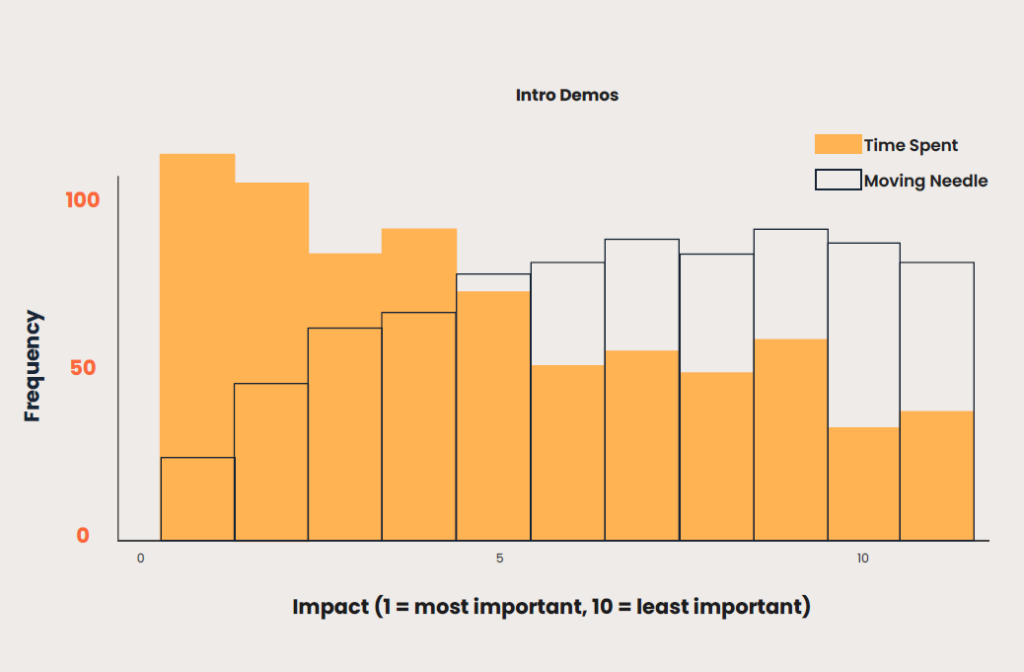
Intro demos are the worst offenders. Individual contributors are spending the majority of their time working to qualify leads that often don’t convert rather than focusing on high-value tasks. This inefficiency is closely related to employee burnout and drives turnover in the same way as crunch time.
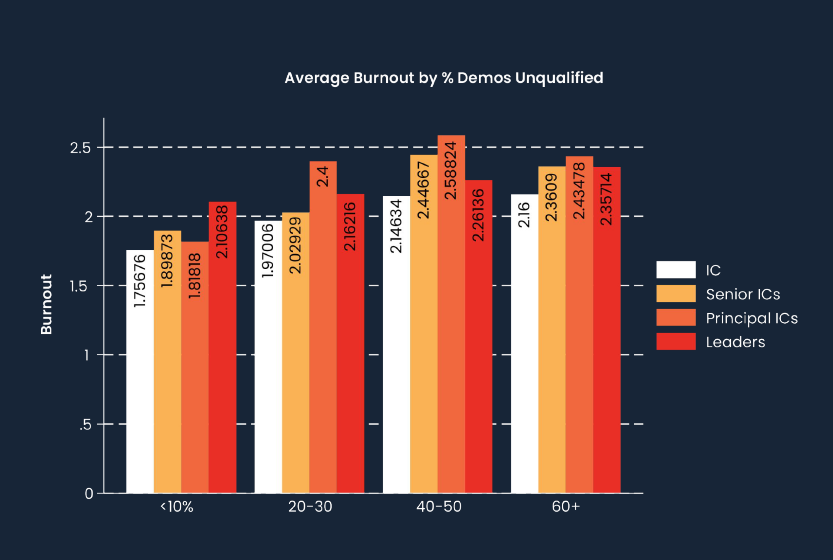
Prioritizing time management and efficiency among individual contributors requires presales managers to adapt their workflows to ensure their team feels their time is being spent wisely. Some good places to start are automating repetitive tasks, increasing development time, or even validating the team’s contribution to the sales process.
Further Reliance on Automation
Reducing the amount of repetitive tasks is a top priority for presales. Leaders list it as their top want in the workplace, and ICs place it second on their list of desired changes. Using automation, some brands are already seeing a 3% reduction in average misallocated time — a top contributor to employee burnout. With an increased emphasis on addressing burnout, demo automation could become your team’s greatest tool in reducing turnover.
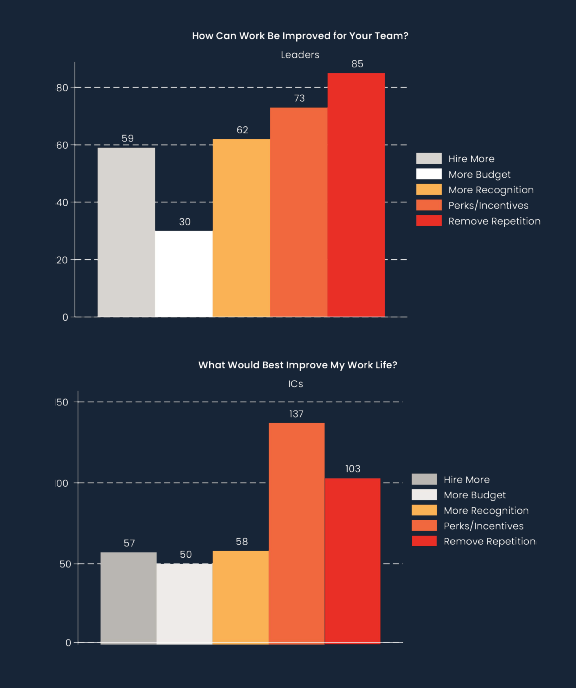
Currently, data from the SE Report shows that 57% of organizations are automating some demo processes. Although this trend of automation has remained relatively stable in recent years, the tools available to the presales industry are constantly evolving to reduce more repetitive tasks and will likely become more appealing options to brands as time goes on.
Reduction of Sales Cycle
As demo automation becomes more integrated into the presales workflow, it will create ripple effects that may shorten the sales cycle. For example, automated demos have been shown to reduce unqualified demos by 15%, which can cut down your team’s overall average sales cycle.
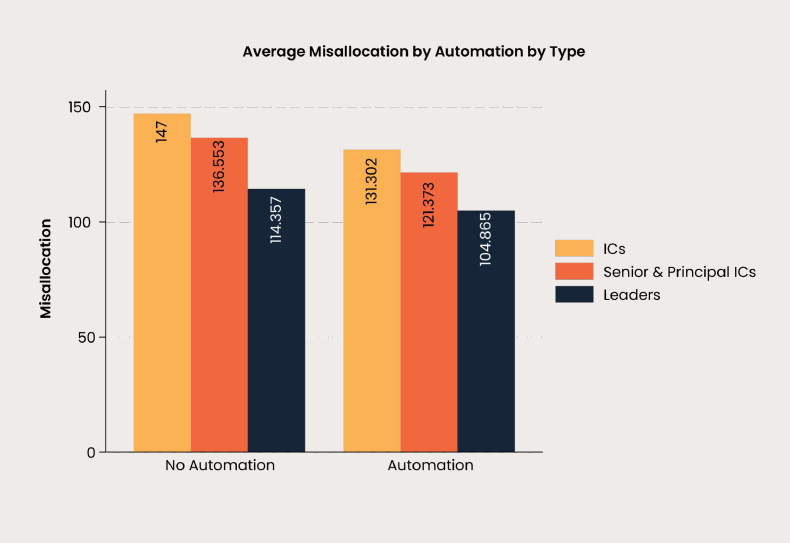
Adding automation to your presales process also allows your team to reduce the number of demos required to close a sale and centralize stakeholders to one location, both factors which can contribute to the overall length of a sales cycle. Shorter sales cycles mean your team will not only be able to close more sales per period but also have more time to focus on the product knowledge that makes them technical experts.
More Stakeholders Means a Need for Higher Flexibility
In the SE Report, sales engineers report a 19% increase in the number of stakeholders involved per deal. This indicates that sales interactions are becoming more complex over time, which not only makes each sale take longer — it makes them more difficult to close as well.
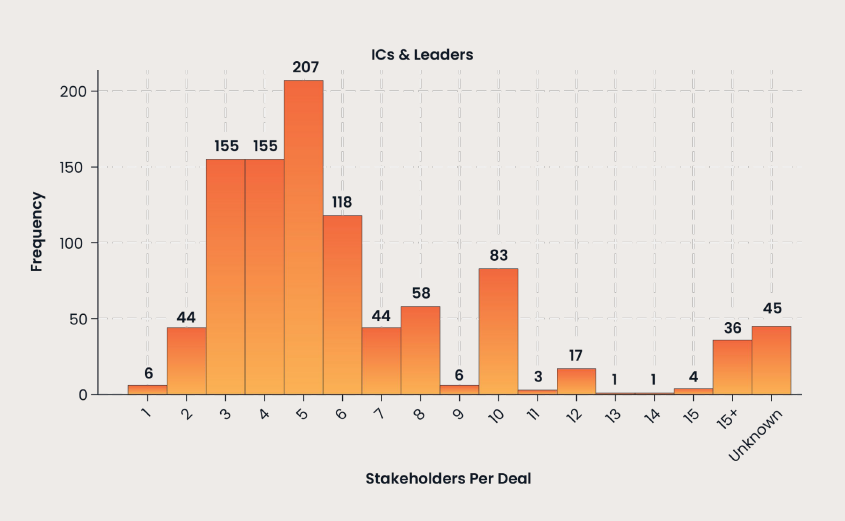
Another aftereffect of this new change is the increased importance of discovery. Individual contributors must uncover more information about a wider range of potential stakeholders so they can properly address each participant’s individual pain points throughout the sales process.
This shift may require ICs to rethink the way they present sales demos to keep their sales cycle compact and effective. Tools like sales demo automation can empower sales engineers to move into a new era or presales built around easily customizable sales content that adapts to meet the needs of a wider range of stakeholders.
Learn More About Current SE Trends
It’s hard to say what the exact future of sales engineering will be, especially with the constantly evolving landscape of presales technology. However, by staying on top of the latest trends, you and your team can prepare for whatever might be next. Check out the Consensus SE Report to discover industry trends, insights, and data about the present and future of sales engineering.





